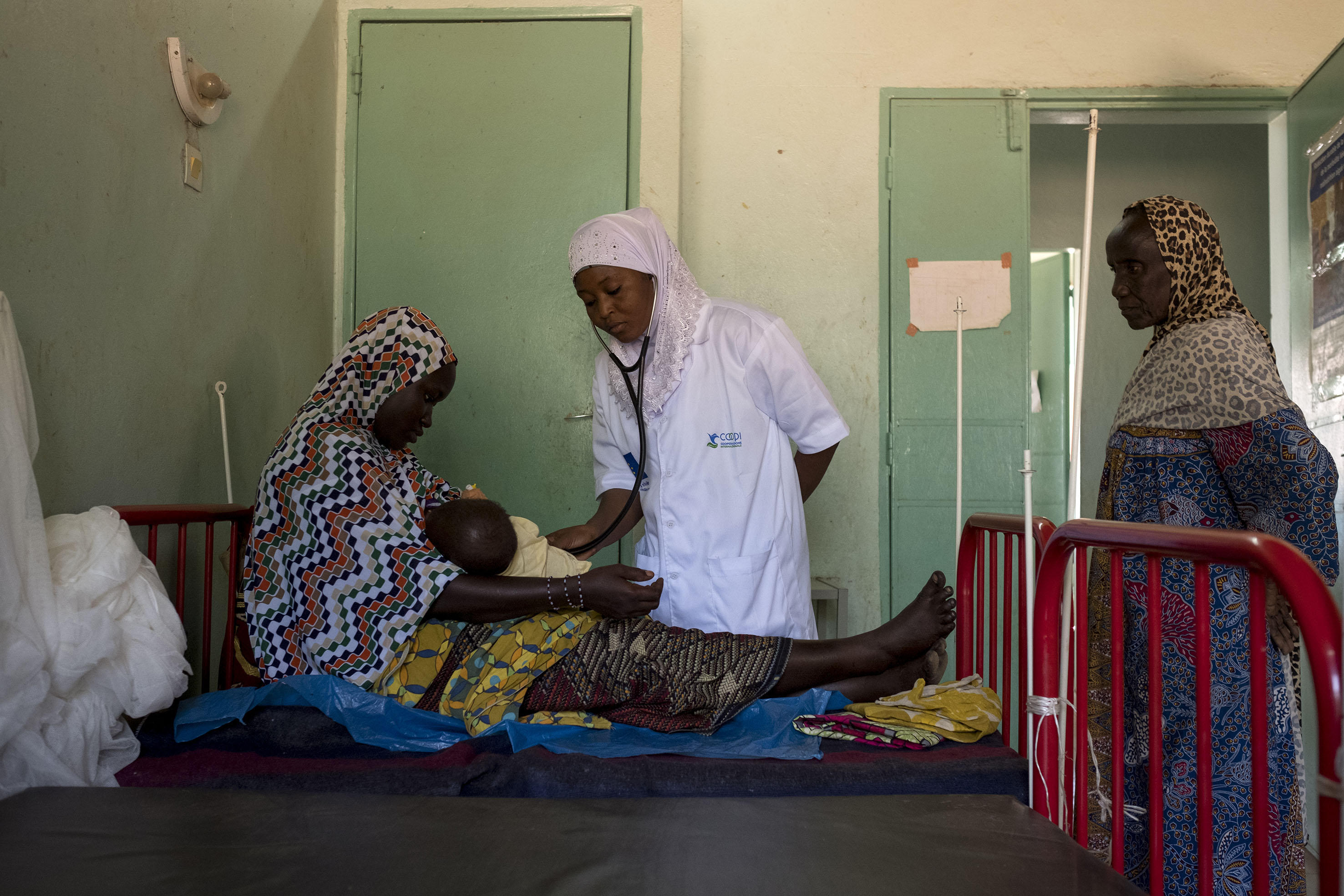World refugee day. Over 123 million people forced to flee their homes
According to the Global Trends 2025 report by the United Nations Refugee Agency (UNHCR), released to mark World Refugee Day (June 20), a record 123.2 million...
Read more
Le contenu en ligne est aussi disponible en français. Passer au français
Since 2012, COOPI has been working in Niger in the context of several complex humanitarian crises by developing integrated multi-sector intervention programs.
COOPI has been present in Niger since 2012, initially in the areas of Nutrition and Food Security, particularly in the Tillabéry region. Since 2015, it has also been active in Diffa in Education, progressively expanding its interventions to Protection, Mental Health, psychosocial support and non-formal education, in response to the displacement of displaced people and local needs. Between 2017 and 2019, COOPI started a project in Food Security in the Dosso region, supporting farmers. Since 2023, it has been providing assistance in food, protection, BNA and shelter to migrants and refugees expelled from NorthAfrica. Since 2018, it has participated in the Emergency Transit Mechanism project for asylum seekers evacuated from Libya. Since 2019, COOPI has implemented MRR interventions in Health, Nutrition and Mental Health to support displaced persons affected by Non-State Armed Groups attacks, extending the approach to Diffa as well from 2021. Finally, the commitment to formal and non-formal education in Diffa, Tillabéry and Tahoua continues, including in conflict contexts.
Today, Niger faces several complex humanitarian crises. In this context, COOPI collaborates with institutional partners to develop integrated multi-sectoral programmes aiming to improve access to basic services, strengthen the resilience of populations and mitigate the impact of climate crises in different parts of the country.
In the Diffa region, COOPI is primarily implementing Protection, WASH, Health/ Nutrition, Education in Emergency, Psychosocial support and mental health-related projects. In the north west of the country - Tillabéri and Tahoua regions - COOPI adopts Rapid Response Mechanisms (RRM) to intervene in the nutrition and health sectors. In the Maradi area, COOPI deals with mental health and offers psychosocial support, promotes primary health and implements programmes to fight against malnutrition. In the Agadez region, COOPI actively intervenes in the areas of migration, mental health, and psychosocial support, while promoting small businesses.
In all areas, COOPI also implements disaster risk reduction programmes.
In Niger, COOPI carries out protection actions mainly in areas with a high presence of displaced persons, refugees, and asylum seekers, as part of integrated emergency response interventions. The main protection activities implemented by COOPI in Niger are:
projects
beneficiaries
In Niger, COOPI carries out protection actions mainly in areas with a high presence of displaced persons, refugees, and asylum seekers, as part of integrated emergency response interventions. The main protection activities implemented by COOPI in Niger are:
projects
beneficiaries
In Niger, COOPI carries out activities to promote basic health, mental health and psychosocial support. COOPI namely carries out activities, including:
projects
beneficiaries
In Niger, COOPI implements programmes to fight against malnutrition, namely by:
projects
beneficiaries

COOPI main areas of intervention in Niger in the near future will be:
Rapid Response Mechanism (RRM) • Health • Mental health and psychosocial support • Food Safety • Child Protection and GBV Gender Based Violence sub-cluster • Education • GTABNA Abris Bien Non-Alimentaires • GTGH Groupe Techinque Genre Humanitaire • IMWG Information Management Working Group • Nutrition Security in Emergency • Wash • Intercluster • Logistics • Administration and Human Resources • Multisector Cash (MSCWG) • Access • Forum humanitaire • Equipe Humanitaire Pays
Italian Embassy in Niger • Cellule Crises Alimentaires (CCA) • Cellule de Coordination du Systéme d'Alerte Précoce (CC/SAP) • Dispositif National de Prévention et de Gestion des Crises Alimentaires (DNPGCA) • Enseignement technique et de la Formation professionnelle • Ministère de l'Action Humanitaire et de la Gestion des Catastrophes • Ministère de la Jeunesse et des Sports • Ministere de l'Education • Ministère de la Promotion de la Femme et de la Protection de l'Enfant • Ministere de la Culture, du Tourisme et de l'Artisanat • Ministere de l'Aménagement du territoire et du développement communautaire • Ministere de la Santé publique, de la Population et des Affaires sociales • Coordination civilo-militaire (CCM-coord) • Direction Régionale de la Santé Publique (DRSP) • Direction Régionale de l'Enseignement Professionnel et Technique (DRFP/T) • Tribunal de Grande Instance de Diffa • Tribunal d'Instance de Mainé Soroa
ICRD Initiative Communautaire Resilience Developpément
Wan Nawanan
ALIMA • CWW • E4IMPACT • Mercy Corps • MLAL • NRC Norwegian Refugee Council • PUI Francia • Save The Children